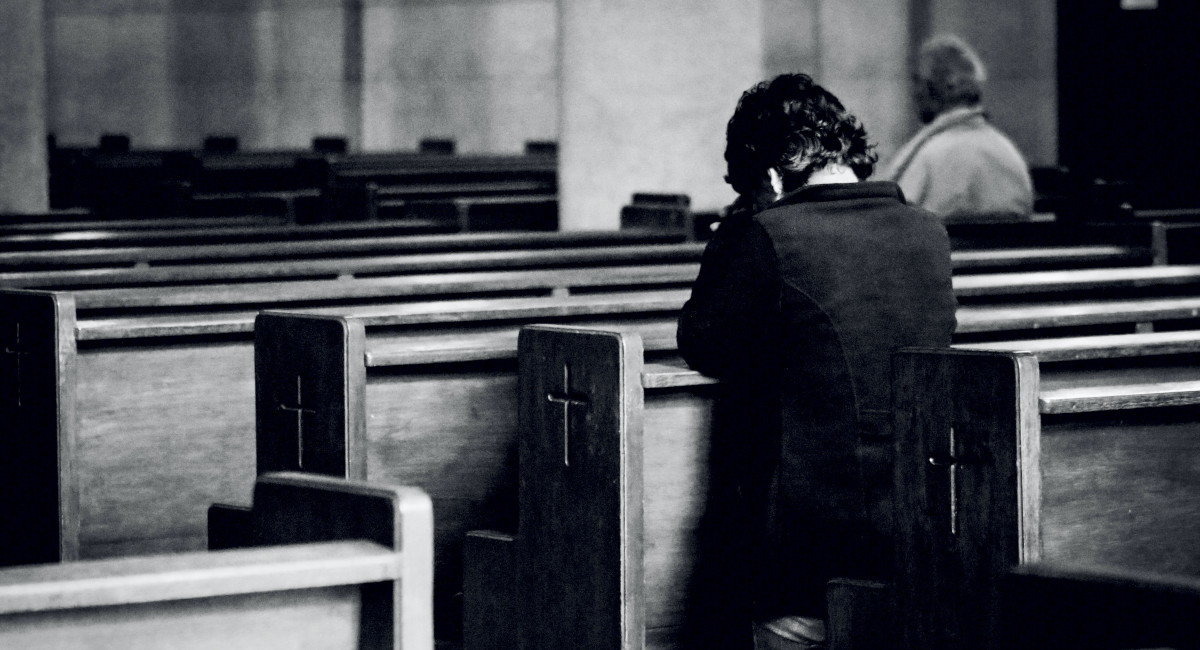 In the face of challenges and opportunities from Covid-19, pastoral workers would do well to resist the temptation of jumping too hastily into action as some contemporary secular leaders do. Instead, they can take a step back and become more mindful of making a good discernment of God’s will. Some common questions might include: How do we respond to Catholics who now prefer to continue with online Masses even after physical church gatherings are allowed? What role can local lay leaders play in building up the faith community? How can ecclesial life and mission be made more meaningful and fruitful in the new normal? In collaborating with others to rebuild society, what values should guide us and where should these values come from? What is the right balance between economic revival, health, social, and environmental needs?
In the face of challenges and opportunities from Covid-19, pastoral workers would do well to resist the temptation of jumping too hastily into action as some contemporary secular leaders do. Instead, they can take a step back and become more mindful of making a good discernment of God’s will. Some common questions might include: How do we respond to Catholics who now prefer to continue with online Masses even after physical church gatherings are allowed? What role can local lay leaders play in building up the faith community? How can ecclesial life and mission be made more meaningful and fruitful in the new normal? In collaborating with others to rebuild society, what values should guide us and where should these values come from? What is the right balance between economic revival, health, social, and environmental needs?
These questions do not have easy and straightforward answers, and there are often conflicting views even within the Church. The process of discovering the answers requires pastoral workers and their communities to go deeper back to the roots of belief. At the heart of this search lies a fundamental question that has in fact been heard frequently in the pandemic: What is truly essential? In this regard, the Catholic faith has a wealth of wisdom in Scripture and the teaching tradition of the Church that can be brought to bear. Recent magisterial documents, such as those from Vatican II on the nature and mission of the church, as well as on the liturgy can be especially helpful. Pope Francis has also issued relevant and timely documents, such as Fratelli Tutti, Laudato si’, and a series of Covid-related messages compiled in Life After the Pandemic. At the same time, the Congregation for the Clergy has issued a document in June 2020 on The Pastoral Conversion of the Parish Community in the Service of the Evangelizing Mission of the Church, which can provide relevant insights specifically for parish life.
In addition to teachings from the Catholic faith, other wisdom traditions can also be brought to bear, such as those from culture, other religions, and various disciplines. Whatever the resource, the important thing is that they are approached with the aim of discovering and assessing their underlying principles through appropriate and fruitful means. This includes seeking insights through hermeneutical approaches such as “the three worlds of the text” method of biblical interpretation, as well as contemplating them interiorly and bringing them into prayer.
The role of dialogue in discovering what is truly essential has always been evident in critical moments of the Church’s history, from the Council of Jerusalem as narrated in Acts 15 to the ressourcement and aggiornamento of Vatican II. In this Covid time, communal dialogue is once again called for. Amidst a diversity of opinions and perspectives, pastoral workers and their communities need to discern what is ultimately true, good, and valuable in the eyes of God, the Source of all Truth and Love. The method of Spiritual Conversation in the Ignatian tradition could be a helpful tool in this regard. Good dialogue is premised upon genuine openness, mutual respect, deep listening, and authentic speaking. It welcomes everyone to the table regardless of hierarchical position, age, roles and responsibilities, socio-economic background, gender, ethnicity, or ideology. A good process fosters greater empathy and understanding among members and enhances unity, solidarity, and collaboration over time. This serves as an important counter-witness in the present milieu where social division and polarization have been on the rise, sometimes exacerbated by the Covid pandemic. Genuine dialogue also enables a community to purify and develop its beliefs, worldview, and values.
Solidarity, unity, and insight on profound truths are ultimately graces and gifts from God and come most efficaciously with sincere discernment as one communal body. In tandem with their mutual listening and sharing, group members in communal discernment also exercise intellectual reasoning, along with genuine attentiveness to the innermost movements of their hearts, where the deepest truths are often revealed. As Gaudium et Spes reminds us, “humans plunge into the depths of reality whenever they enter into their own heart; God, who ‘probes the heart,’ awaits them there; there they discern their proper destiny beneath the eyes of God” (GS 14). Such insight into ultimate truth come to human persons not as isolated individuals but as a spiritually united and organic discerning body.
The relevant foundational principles which the group has clarified are then applied to the questions at hand to illuminate the most appropriate responses. Often, there is no one right answer. What is important is that the community has come to a better appreciation of what is most essential and has endeavoured to make a good discernment through the meaningful participation of all members, seeking God’s will with sincerity. The most resonant response for the matter at hand can be tried out, bearing in mind that more clarity would come along the way. In this regard, the group should also proceed in a synodal way during the implementation of actions, exercising creativity, flexibility, dialogue, and discernment. A new normal often implies proceeding through trial-and-error, not fearing failure but always ready to experiment, evaluate, discern, learn, innovate, and try again. If anything, the pandemic has highlighted the rightful dispositions of humility and adaptability in all humankind’s endeavors. It also calls for a recognition of humans’ vulnerability and of our dependence on God and one another.
Increasingly, the Church needs to engage with others in society to address common issues. This is true especially for the Covid-19 pandemic as well as other complex challenges such as climate change, natural disasters, and socioeconomic inequalities. No single entity has all the answers, and everyone needs to seek and learn together in collaboration. From a theological perspective, promoting partnerships in the wider society is also imperative to the Christian faith vision of the human family. Synodality thus applies not only to the Church but to the whole of humanity as well. In this regard, pastoral workers can explore more fruitful ways of engaging entities outside the ecclesial community, be they civic organizations, local neighborhood associations, other religions, business firms, NGOs, or government agencies. As highlighted above, the engagement needs to avoid jumping too quickly from problem to action but should involve communal discernment, including a pivotal conversation to clarify what is ultimately true and good. Such conversations can bring the whole community to a higher level of collective wisdom in terms of its beliefs and values, and promote long-term positive cultural transformation. Thus in the dialogue, fundamental questions can be raised, such as: What is essential? Why? What comprises the human good? Why do we think so? What is our underlying worldview?
A key challenge is to find more universal concepts and terms with which to discuss profound realities that are traditionally associated with religious belief. These include the notions of God, salvation, sin, and eternal life. In an increasingly pluralistic and secular world, these religious notions do not easily find an acceptable place in public discourse. In fact, the very mention of them might even be misconstrued as proselytization. However, by paying attention to the language and narratives of diverse groups in society, including social, cultural, business, and government sectors, pastoral workers can become more aware of the intrinsic guiding principles which they espouse and which resonate with the Church’s teachings, and the terms that are used for them. These typically include “the common good,” “human dignity,” “equality and justice for all,” “universal flourishing,” “solidarity,” “promoting physical, social, emotional, and spiritual well-being,” and in these Covid times, “building back sustainably.” Such terms and their underlying principles can serve as helpful starting points for initiating a conversation about universal truth and values.
Thereafter, the conversation can be gradually deepened and broadened so that all parties are encouraged to discover more profound realities, including the transforming love of God. Accordingly, there are also ways to open up spaces within public discourse or help non-believers engage with the divine reality. For instance, many people would acknowledge the existence of a positive force of goodness in the world, or a de facto origin of life, or even an ultimate source of being and renewal. Persons who do not have any particular religious affiliation might also be able to identify experiences of being touched by transcendent love or being profoundly moved by something beyond themselves. By listening to the varied experiences of people, pastoral workers might gain expanded notions of God and be able to foster more collaborative discernment about ultimate realities, thus strengthening the foundations upon which to rebuild society. To this end, various forms of interior reflection and contemplation can be adapted and encouraged for people of diverse backgrounds so that they can reconnect more deeply with their own experiences and become more aware of the divine life within them.
 Christina Kheng teaches pastoral leadership at the East Asian Pastoral Institute and is a Planning Consultant with the Jesuit Conference of Asia Pacific. Her research focuses on theological methodologies in Church-society dialogue. She can be contacted at chriskheng[at]gmail[dot]com.
Christina Kheng teaches pastoral leadership at the East Asian Pastoral Institute and is a Planning Consultant with the Jesuit Conference of Asia Pacific. Her research focuses on theological methodologies in Church-society dialogue. She can be contacted at chriskheng[at]gmail[dot]com.
This article is an extract of a longer article, Rebuilding from COVID-19: Pastoral Leadership Towards A New World, published in the East Asian Pastoral Institute’s journal, Asia Pacific Mission Studies. To read the full article, click here.

